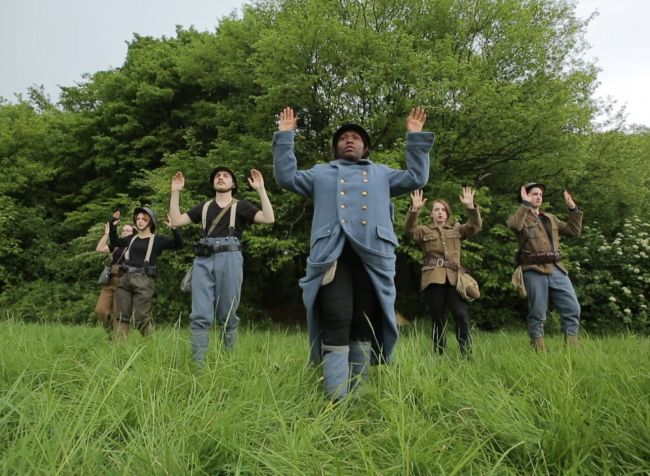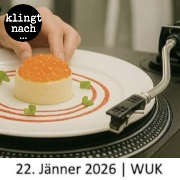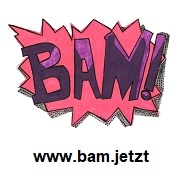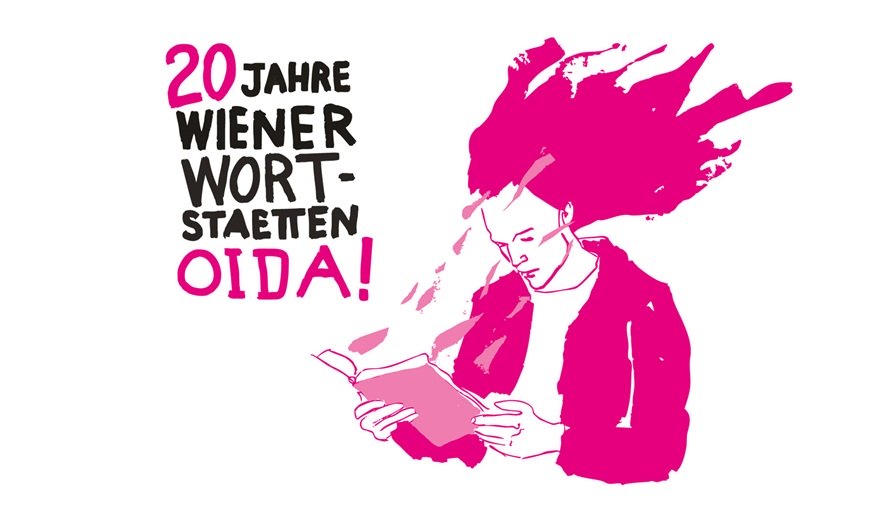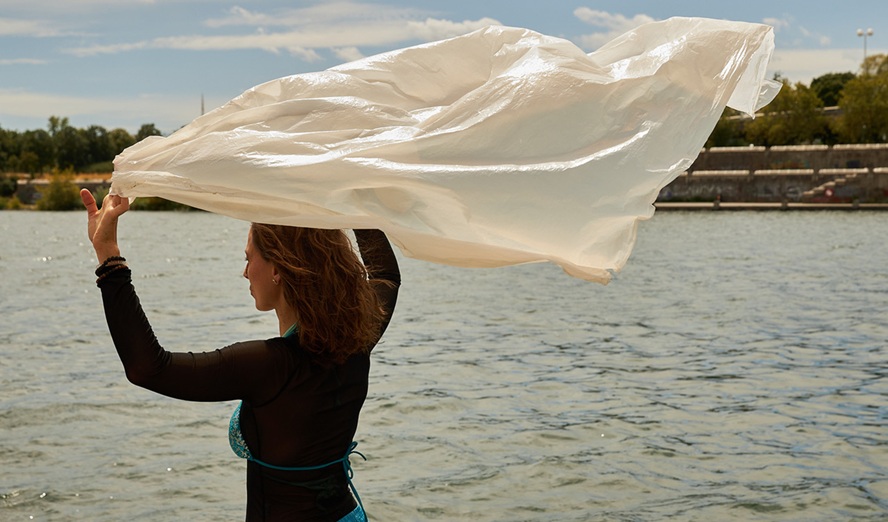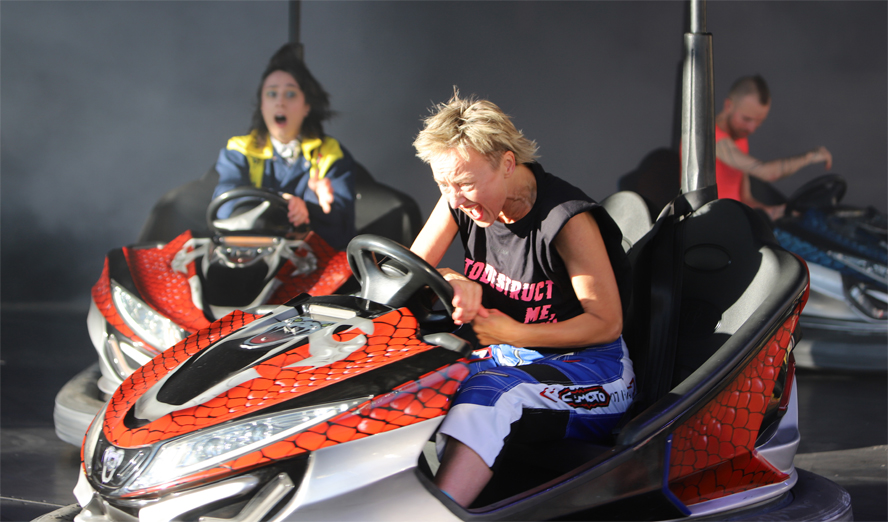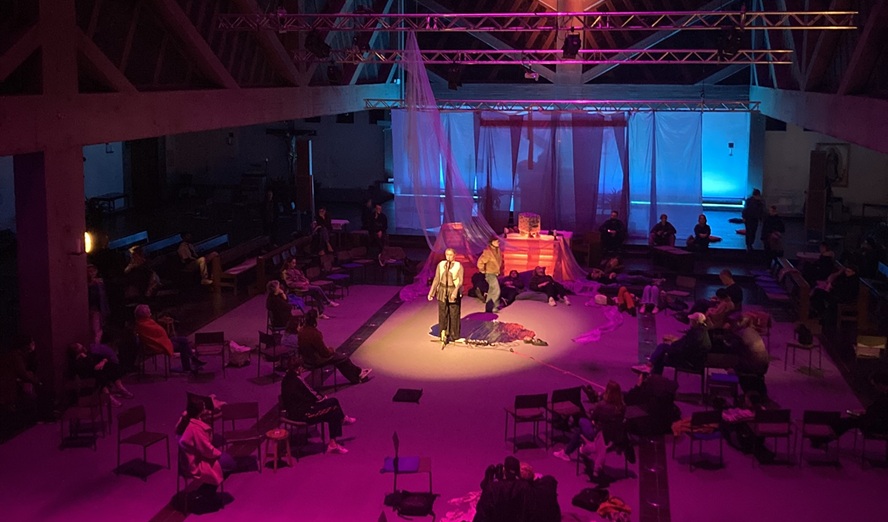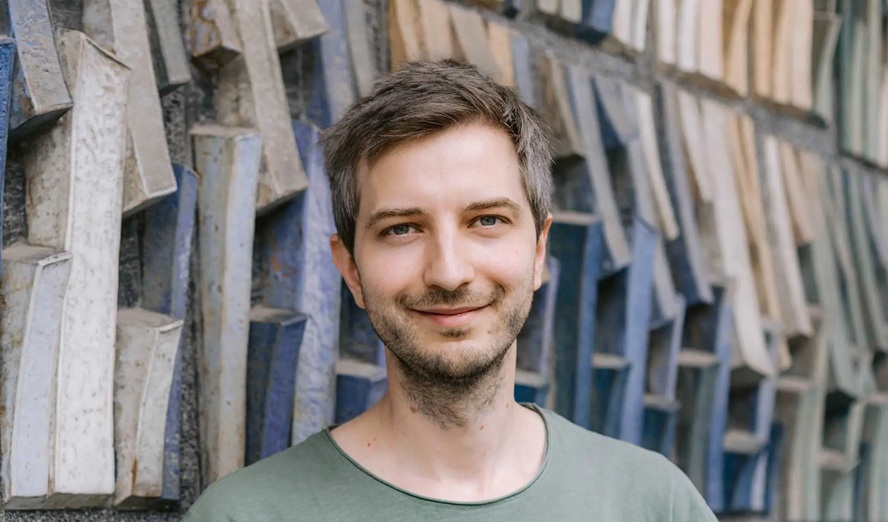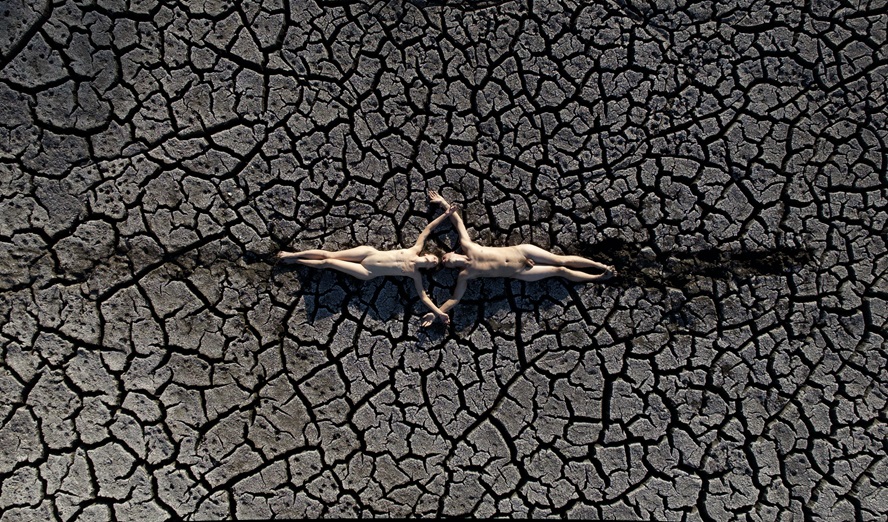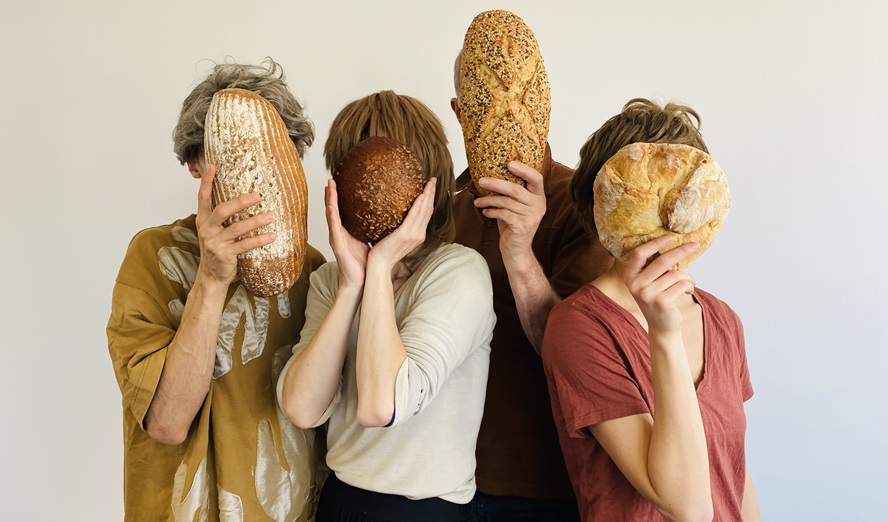Superamas – a theatre company as well as a dance company – also works at the intersection of visual and performing art. This results in transdisciplinary work that utilises the kitsch and the pretence of popular culture as a motor for their pieces. After its beginnings in Paris in 1999, Superamas settled in Vienna in 2001 and is now based in Austria, France and Belgium. There is some confusion lately about the policy of the city of Vienna which decided not to fund Superamas (among other well-known companies) anymore on the long term.
 superamas_1.jpg)
ImPulsTanz supports the company by showing their piece »Vive l’Armée!« at the Akademietheater on 29th of July. The central issue of this collective work, described by Superamas, is to show: »War as a vehicle of identity foundation and the portrayal of an enemy image as the antithesis to the embodiment of the ego and to one’s own affiliation«. skug talked to Philippe Riéra from Superamas about the process of this international production.
skug: In dealing with the European past in »Vive l’Armée!«, parallels are drawn with current events, with the situation in our democracies and the fragility of Europe …
Philippe Riéra: It is going to be a dialogue between the film projection and the stage work. The screen section, which is quite a long film, is in charge to represent World War I and the stage is in charge to represent our contemporary time, conflicts like terrorism and hostage taking, asymmetric wars – faced in a theaterical setting.
»Vive l’Armée!« is the result of a preceding intensive work cycle, also working together with pupils from France …
For the film we worked with pupils, about 17, 18 years old. In 2016 we had some kind of atelier workshops during the whole year. We played with them, we shared with them our artistic research on the topic and then we encouraged them to appropriate and do their own digestion of those facts. We gave them some cameras and some exercises and then we let them research what could be the best representation of World War I, playing with different media.
You addressed the themes of war, terrorism and nationalism. How familiar were the pupils with these topics?
We fed them with ideas, facts, philosophers and historians they would not necessarily come across. It is additionally to what they originally learn at school. We are not historians but we invited a historian, Jacques R. Pauwels from Canada, who gave them three lectures. He is a bit of a Marxist so he has very specific views and analysis on the reasons why the war broke out. Among other: Germany and Great Britain were both marching to Mesopotamia to access the oil shortly before World War I. And Mesopotamia is now called Irak …
Did you show them also some films to inform and inspire them?
We also showed them some films like »The Path of Glory« from Stanley Kubrick. We brought the films at work and re-enacted scenes from the films with the pupils. Right there in their area with trenches and costumes of World War I. They were playing a dime, a skizzle is it like … they were re-enacting, restaging, retaking some scenes. They were at real locations where people died for real. So the confrontation is quite moving. And the pupils are from that region, their grandparents fought there, all of those families lost some members in the Battle of the Somme and the Battle of Verdun.
Was it the first time that you worked with pupils from that age?
Yes, it was the first time that we worked with pupils. You have to plan way in advance. They were really willingful, teachers included. That really helped. Their film that we made there is now about 25 minutes long and is shown in two parts. It is a kind of documentary with about sixty pupils. We worked with different groups, they were all together for the lectures and the film shootings. We had to adapt to what they can do or what they wanted to do. We didnʼt want to add boredom to their schedule, it had to be crispy, exciting for them.
Last question: What is your resumee or personal opinion on these topics?
It is interesting to see that history is not an expression of facts but rather a political project. So with »Vive l’Armée!« we go down to the topic of propaganda, how politicians and politics are playing with the facts and how hard it is to get through to real facts.
I observe this stride, this obsession, this engagement for a European identity. In our group there are international couples, our kids go to international schools, we work internationally, so we still believe in a European project – but not the way it is now.
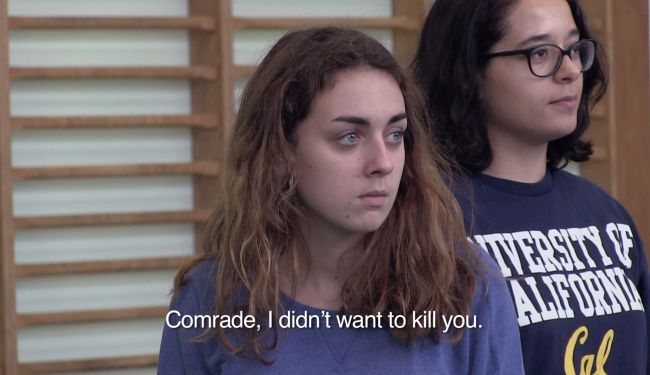
Superamas – »Vive l’Armée!«
29th July, 20:30
Akademietheater
1010 Vienna
»www.impulstanz.com/..
www.superamas.com
